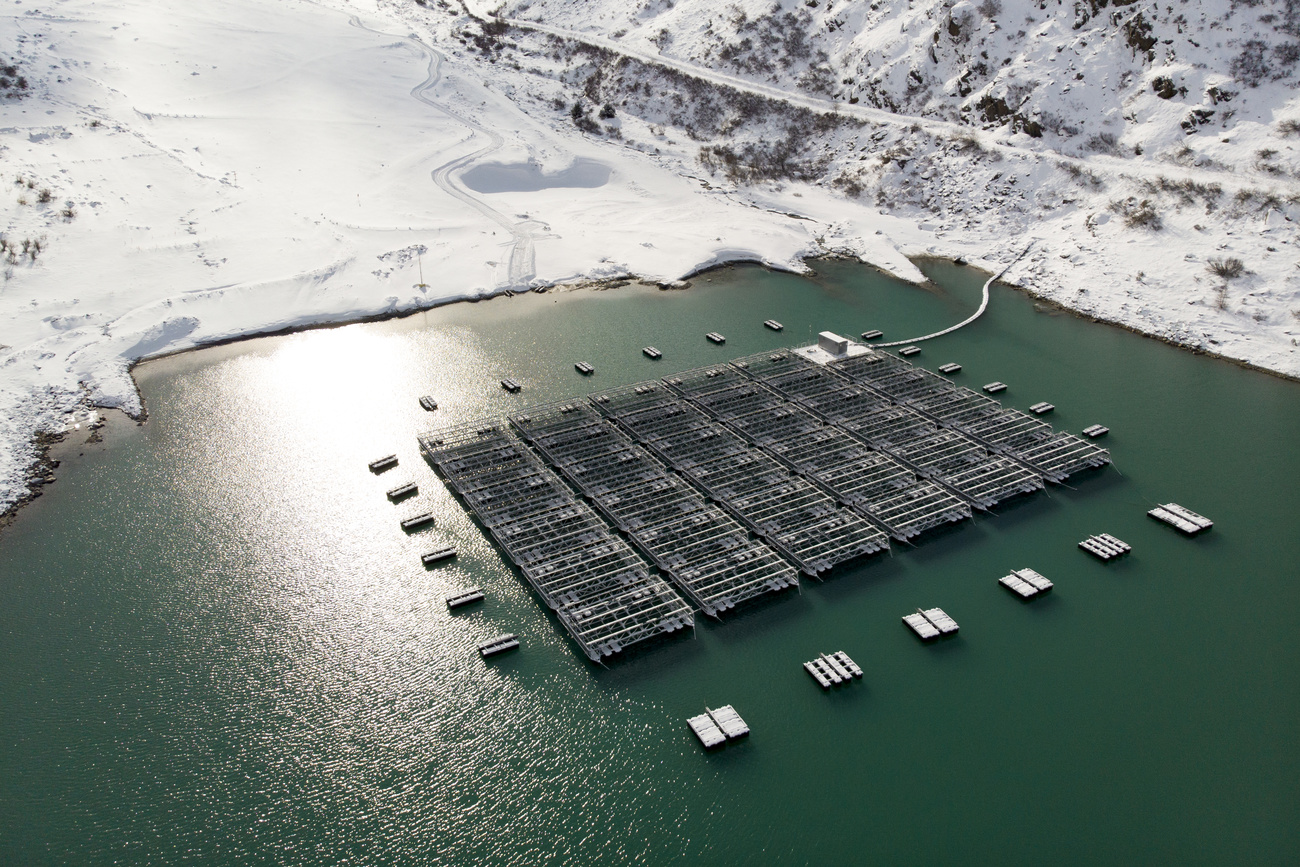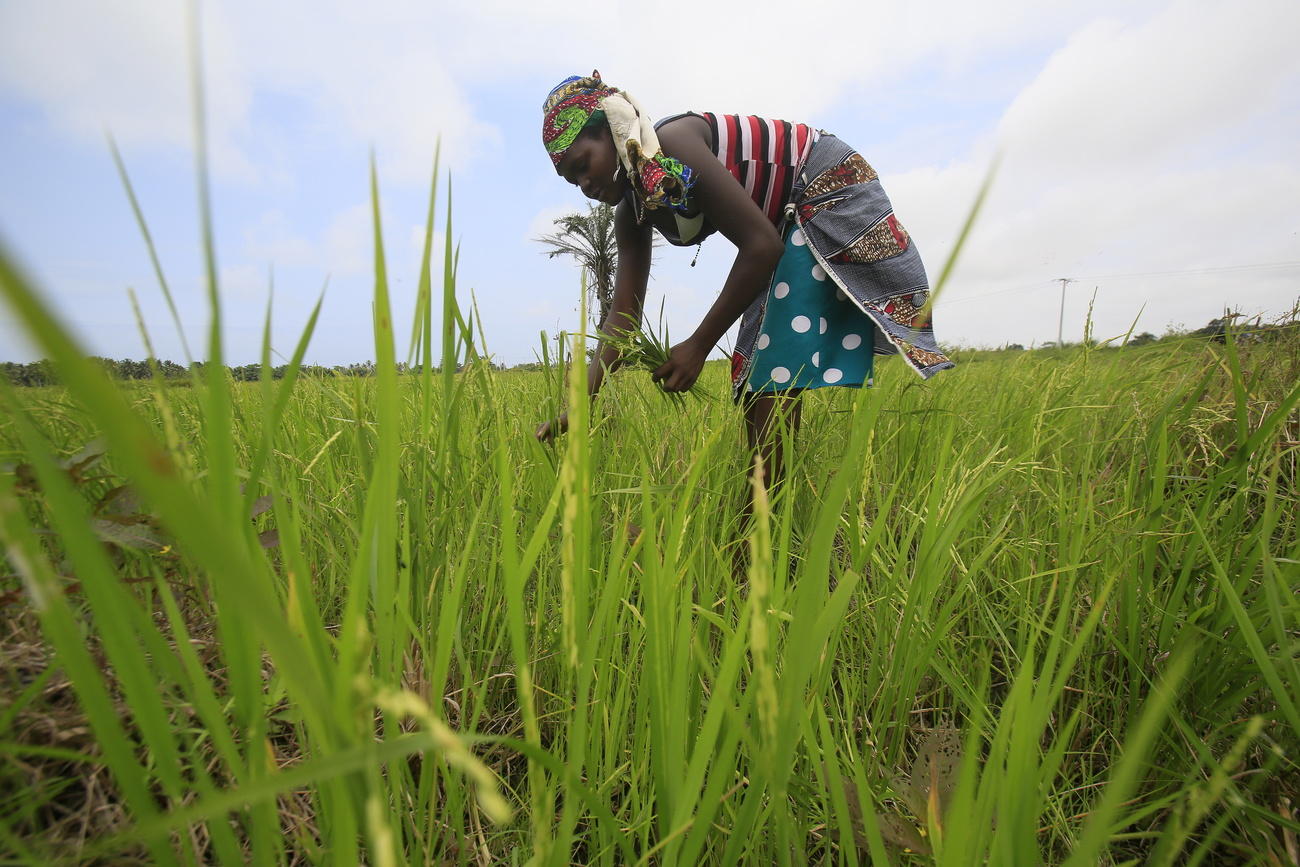Swiss sustainable finance: world leader or wishful thinking?

The Swiss financial centre wants to take a lead in ethical investing. NGOs, however, fear the banks are more interested in cashing in than saving the planet. One thing everyone agrees on is the need for a universal definition of sustainable finance and measures to oversee the sector.
Sustainable finance invests in the environmental, social and governance (ESG) goals of the UN’s 2030 Agenda for Sustainable Development and the Paris Agreement on climate change. The objective is to help bankroll the global eradication of poverty, inequality, conflict and environmental degradation.
“The Swiss financial centre is a pioneer of sustainable finance and is on course to become a premier international hub in this field,” says the Swiss Bankers Association (SBA), who has made this growing asset class a “top priority”.

More
Impact investing: one eye on the wallet, the other on the planet
And its aspiration appears to be backed up by raw data. The Swiss Sustainable Investment Market Study 2020 says that over the last 10 years, such sustainable investments have risen from CHF40.6 billion to CHF1.16 trillion ($42.7 billion to $1.2 trillion), leaping by 62% in 2019 alone.
But at the same time, the Swiss central bank and financial sector are routinely criticised by NGOs for investing in environmentally and socially unsound projects. A recent study by the NGOs Artisans of Transition and the Swiss Climate Alliance was particularly scathing.
“Wishful thinking”
The report criticised the Swiss National Bank’s (SNB) “extremely weak position” on assessing the risks of climate change compared to other central banks. It said the SNB was responsible for 43.3 million tonnes of CO2 emissions through its investments in fossil fuels – a figure that has barely dropped in recent years.
“The SNB is a role model for the entire financial industry. It is failing to move forward on sustainability, which makes it difficult for others to follow,” Yvan Maillard Ardenti of the Swiss Climate Alliance told swissinfo.ch.
The study also took Credit Suisse and UBS to task: while they actively claim sustainable credentials, they also have long records of investing in fossil fuel projects, the NGO said. It also found that some three-quarters of Switzerland’s 60 largest pension funds have no climate policy.
There is a mismatch between the stated ambitions of the financial centre and the perception of its actions by pressure groups. The complaints of NGOs are twofold: for every franc that some banks pour into sustainable projects, at least the same again goes into polluting or anti-social investments. Secondly, some sustainable investment funds being marketed by banks merely pay lip service to the label.
Creating a fund that refuses to invest in weapons is not enough to make it sustainable, says Maillard Ardenti. “With the exception of a couple of smaller banks, the rapid growth of sustainable finance in Switzerland is wishful thinking at the moment.”
Global challenges
The Swiss government has also recognised sustainable finance as a source of economic growth and potential reputational damage. It recently issued a detailed report on the sector, identifying several areas for improvement. These include giving investors clearer information and better evaluating the risks of unsustainable activities, such as investing in fossil fuels.
“In view of global challenges, further efforts must be made to safeguard and further expand the interests and competitiveness of the Swiss financial centre internationally,” states a press release.
Meanwhile, the government has said it favours a hands-off regulatory approach, allowing banks to set their own standards for the sector – though they should be in line with international best-practice benchmarks.
The Swiss financial regulator says it will work to protect consumers from being “deceived by exaggerated or misleading claims about ‘green’ properties, for example in the case of investment products.”
It will also demand “improved disclosure of financial climate risks by major financial institutions, in order to improve transparency and market discipline.” In other words, make banks properly calculate the risk of financial or reputational damage from investing in unsustainable projects.
Criticisms linger
But Greenpeace Switzerland says the government has missed a chance to set clear and binding rules on sustainable finance. It believes the government is – as usual – pandering to the wishes of banks to self-regulate, opening up possibilities to create their own rules, then turn them to their advantage.
The only way to create certainty for investors is to establish internationally recognised benchmarks and standards for sustainable finance, argues KPMG in a recent report. “There are still no binding and uniform standards. This leads to very different approaches to dealing with the issue at financial institutions, making transparency more difficult for investors.”
Some banks appear also to be internally confused about their strategic message, even among their own staff, the report says. This could result in severe reputational damage, particularly among a new generation of investors who are only too eager to air their concerns on social media.
With the Swiss authorities displaying little appetite to set legally binding standards, the problem will need to be solved by international bodies, particularly the European Union, KPMG concludes.

In compliance with the JTI standards
More: SWI swissinfo.ch certified by the Journalism Trust Initiative














You can find an overview of ongoing debates with our journalists here . Please join us!
If you want to start a conversation about a topic raised in this article or want to report factual errors, email us at english@swissinfo.ch.